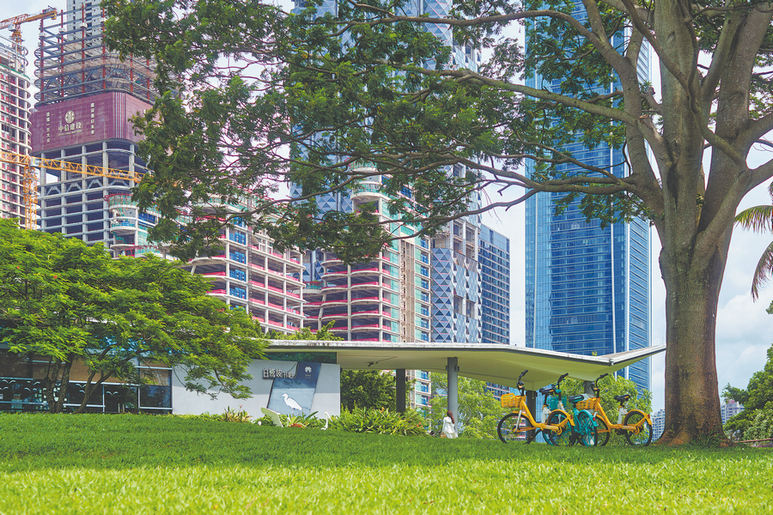
Urban parks in China are evolving into spaces for tourists to enjoy both nature and books, thanks to policies that integrate bookstores into recreational areas.
Leading this trend are cities such as Beijing, Wuhan in Hubei province, and Shenzhen in Guangdong province. In late August, the Beijing government announced a public consultation for the draft revision of the Beijing park ordinance, inviting feedback to enrich public cultural services in parks.
A key aspect of this revision allows parks to redevelop vacated spaces for public facilities, including bookstores, horticultural stations, and exhibition areas. The revision also encourages policies that support hosting cultural, artistic, sports, and festival events in parks, such as book markets and horticultural experiences.
By 2025, the capital's Fengtai district aims to set up 1,000 shared reading spots in libraries, schools, parks, enterprises, hotels, and hospitals. The district is dedicated to making reading resources accessible within a 15-minute radius for all residents, according to its cultural and tourism bureau.
In early 2022, Beijing's forestry and parks bureau took steps to revitalize park activities by encouraging park management agencies to attract social capital for investment, construction, and operation of various service projects. The projects include dining and retail, sightseeing and entertainment, sports and fitness, and smart management, aiming to invigorate park business, according to the trial Beijing park ancillary service project operation access standards.
A bunch of bookstores opened in parks across Wuhan, Hubei province, in recent years. The city has taken measures to support bookstores. In a supporting document released in 2022, the city promised to provide financial support for new bookstores in key locations including airports, communities, and tourist spots.
To receive these subsidies, bookstores must have at least 50 square meters of retail space and ensure that at least 70 percent of their inventory consists of noneducational books.
Shenzhen in Guangdong province has transformed underused park buildings into themed reading spaces, each designed to reflect the unique character and natural beauty of the surrounding area. To facilitate access and engagement, the Shen iPark WeChat applet provides a digital guide to the city's park bookstores. This tool allows users to check the operational status of these facilities in real time, making it easier for visitors to plan their visits, Jingbao newspaper reported in March 2024.
He Qicong, associate professor from Beijing Normal University's Institute of Culture Innovation and Communication, said that the Chinese government provides substantial and sustainable support for physical bookstores. Nearly every province and major city has policies in place to support bookstores. Park bookstores have emerged as a key innovation in the industry.
Currently, there are three main types of support. The first is that new bookstores in parks and similar eco-friendly locations receive financial assistance, she said.
In addition, the government purchases services from or rewards park bookstores that host outstanding reading and cultural events. Administrative measures are used to allocate vacated spaces in parks to bookstores, offering low rent, rent-free arrangements, or rent subsidies, she said.
















